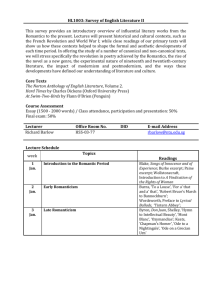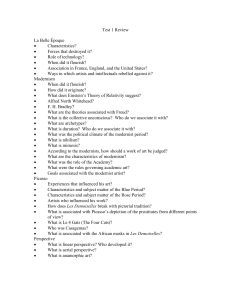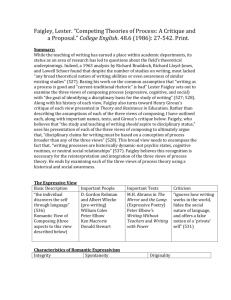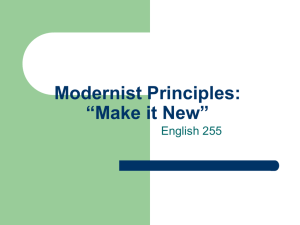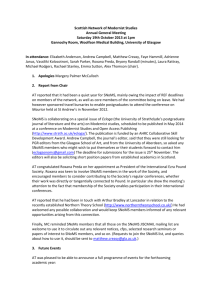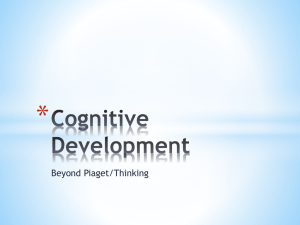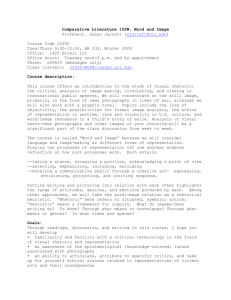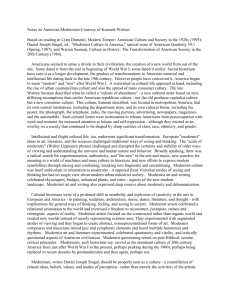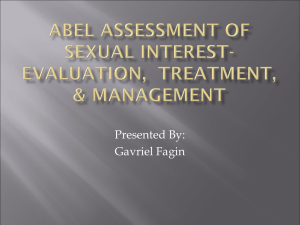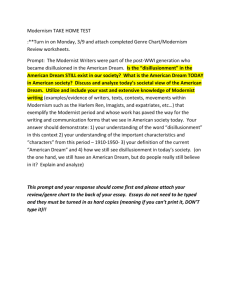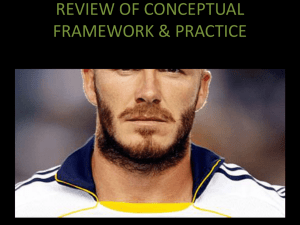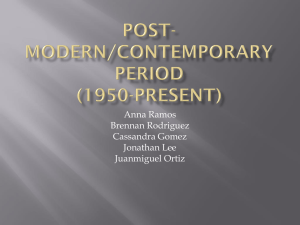The Modern conception of human subjectivity
advertisement
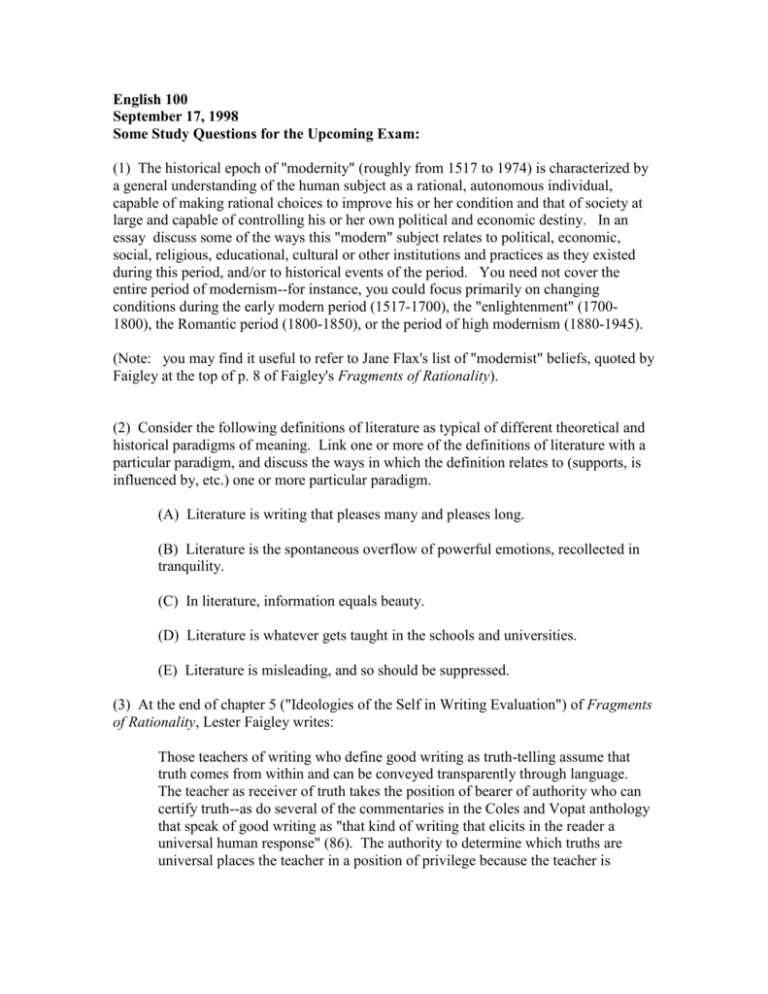
English 100 September 17, 1998 Some Study Questions for the Upcoming Exam: (1) The historical epoch of "modernity" (roughly from 1517 to 1974) is characterized by a general understanding of the human subject as a rational, autonomous individual, capable of making rational choices to improve his or her condition and that of society at large and capable of controlling his or her own political and economic destiny. In an essay discuss some of the ways this "modern" subject relates to political, economic, social, religious, educational, cultural or other institutions and practices as they existed during this period, and/or to historical events of the period. You need not cover the entire period of modernism--for instance, you could focus primarily on changing conditions during the early modern period (1517-1700), the "enlightenment" (17001800), the Romantic period (1800-1850), or the period of high modernism (1880-1945). (Note: you may find it useful to refer to Jane Flax's list of "modernist" beliefs, quoted by Faigley at the top of p. 8 of Faigley's Fragments of Rationality). (2) Consider the following definitions of literature as typical of different theoretical and historical paradigms of meaning. Link one or more of the definitions of literature with a particular paradigm, and discuss the ways in which the definition relates to (supports, is influenced by, etc.) one or more particular paradigm. (A) Literature is writing that pleases many and pleases long. (B) Literature is the spontaneous overflow of powerful emotions, recollected in tranquility. (C) In literature, information equals beauty. (D) Literature is whatever gets taught in the schools and universities. (E) Literature is misleading, and so should be suppressed. (3) At the end of chapter 5 ("Ideologies of the Self in Writing Evaluation") of Fragments of Rationality, Lester Faigley writes: Those teachers of writing who define good writing as truth-telling assume that truth comes from within and can be conveyed transparently through language. The teacher as receiver of truth takes the position of bearer of authority who can certify truth--as do several of the commentaries in the Coles and Vopat anthology that speak of good writing as "that kind of writing that elicits in the reader a universal human response" (86). The authority to determine which truths are universal places the teacher in a position of privilege because the teacher is outside of the petty interests of history but within the boundaries of universal truth. (131) In Faigley's conclusion, this passage describes teaching and evaluation practices based on several "modernist" assumptions. Identify some of those assumptions and discuss how they relate to the practices described in the passage. (4) In Chapter 3 ("Structuralism") of Literary Theory Terry Eagleton details both the modernist tendencies and the anticipation of postmodernism in structuralist theory. On the one hand, he points out the high modernist appeal of Northrop Frye's theories: Frye's work emphasizes as it does the utopian root of literature because it is marked by a deep fear of the actual social world, a distaste for history itself. In literature, and in literature alone, one can shake off the sordid "externalities" of referential language and discover a spiritual home. The mythoi of the theory are, significantly, pre-urban images of the natural cycles, nostalgic memories of a history before industrialism. Actual history is for Frye bondage and determinism, and literature remains the one place where we can be free. It is worth asking what kind of history we have been living through for this theory to be even remotely convincing. The beauty of the approach is that it deftly combines an extreme aestheticism with an efficiently classifying "scientificity," and so maintains literature as an imaginary alternative to modern society while rendering criticism respectable in that society's terms. (81) On the other hand, Eagleton enumerates among the "gains" of structuralism some of its postmodern implications: The structuralist emphasis on the "constructedness" of meaning represented a major advance. Meaning was neither a private experience nor a divinely ordained occurrence: it was the product of certain shared systems of signification. The confident bourgeois belief that the isolated individual subject was the fount and origin of all meaning took a sharp knock: language pre-dated the individual and was much less his or her product than he or she was the product of it. Meaning was not "natural," a question of just looking and seeing, or something eternally settled; the way you interpreted your world was a function of the languages you had at your disposal, and there was evidently nothing immutable about these. (93) Discuss one or more of these features related to the shift from modernism to postmodernism in more detail, drawing on our class discussions, lectures and readings, where possible.
